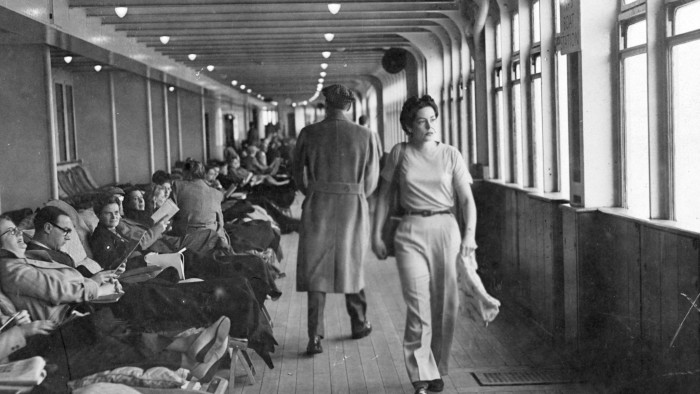Unlock the Editor’s Digest for free
Roula Khalaf, Editor of the FT, selects her favourite stories in this weekly newsletter.
In January 1931, Julia Wallace was bludgeoned to death at her home in the respectable Liverpool suburb of Anfield. Nobody knows who did it, nor why: in all likelihood, nobody ever will. Though no motive was even suggested, her husband William, an agent of the Prudential Assurance Company, was convicted of the murder and subsequently acquitted on appeal.
The gruesome crime attracted tremendous attention. Everyone had an opinion. PD James and Dorothy L Sayers wrote about it; James Agate declared it could be the perfect murder and even Raymond Chandler thought it an “unbeatable” case.
In the absence of any compelling evidence to the contrary, many people simply continued to believe that the wretched husband must have done it, whatever he and the courts had to say. Unsurprisingly, he moved away to live on the Wirral, where he died alone two years later, of natural causes.
Apparently verbatim accounts of the trial and of subsequent investigations throw up some tantalising details: Julia Wallace had concealed her real age and proved to be 17 years older than she had claimed; William had been lured away from his house that evening by a telephone call to his chess club from a Mr Qualtrough, asking him to call at his house for business reasons. William wasn’t much good at chess and seldom went to the club. Nor, it transpired, did Mr Q — or his address — exist. A possible suspect was inadequately investigated because his important father had influence with the police, putting him beyond reproach or justice. So far, so factual. But still nothing adds up.
Anthony Quinn’s solution to the Wallace murder riddle is a bold one. In The Mouthless Dead, he moves the main action forward to 1947 and he creates a new character altogether, a retired detective named Key, who might plausibly have been involved in attempting to solve the crime. By now, Key is on a ship crossing the Atlantic to New York, ostensibly hoping to write his memoir in the serene seclusion of a cruise. His life has been far from easy: even before his police experience, he had been traumatised by the violent death of his best friend at Passchendaele in 1917. Later, he had known William Wallace and had even played the odd desultory game of chess with him.
Now on board the liner, he meets a bright young couple, Lydia and Teddy, and though he is aware of the risks of disclosing too much, he can’t quite resist the chance of showing off about his most notorious case. These two excitedly conceive the idea of making a film about the murder, taking their material from the astonishing inside knowledge that Key is gradually revealing.
As in all his previous novels, which have tended to draw on moments of 20th-century history with a London setting, Quinn’s writing is consistently both nourishing and delicious. Here, his native Liverpool stars in all its splendid, impertinent idiosyncrasy. At one point, for example, Key dreams of seeing an old tram “heaving out of the Mersey mist like a giant sarcophagus, engine wheezing, interior illumined by the pickled yellow light you only ever found there”.
Later, the “wanly prosaic” cruise passengers, “ample-bottomed Rotary stalwarts”, move in ovine flocks from meal to meal, while the complexion of the sky above them declines from a grey biliousness to the “colour of wet flour”.
The ship sails bumpily on and the weather, sympathetic to the general atmosphere, grows increasingly threatening and turbulent. Key becomes ever closer both to Lydia and Teddy and to revealing the fearsome truth of the murder, if the very word truth still means anything.
The shadow of Patricia Highsmith leers encouragingly over his shoulder as the darkness deepens and everything we thought we knew for sure becomes dangerously, thrillingly compromised. The pace of the final 50 pages accelerates until breathing becomes almost impossible, and it is a regretful kind of relief to come to the end of it, disturbed, chastened — but comparatively unscathed.
The Mouthless Dead by Anthony Quinn, Abacus £20, 288 pages
Join our online book group on Facebook at FT Books Café and follow FT Weekend on Instagram and X
Read the full article here

